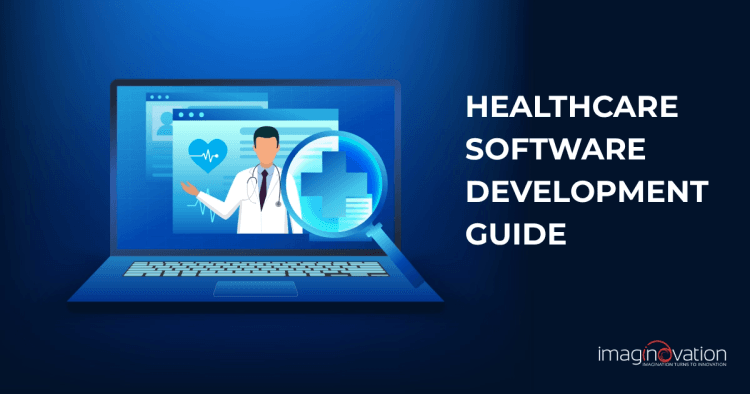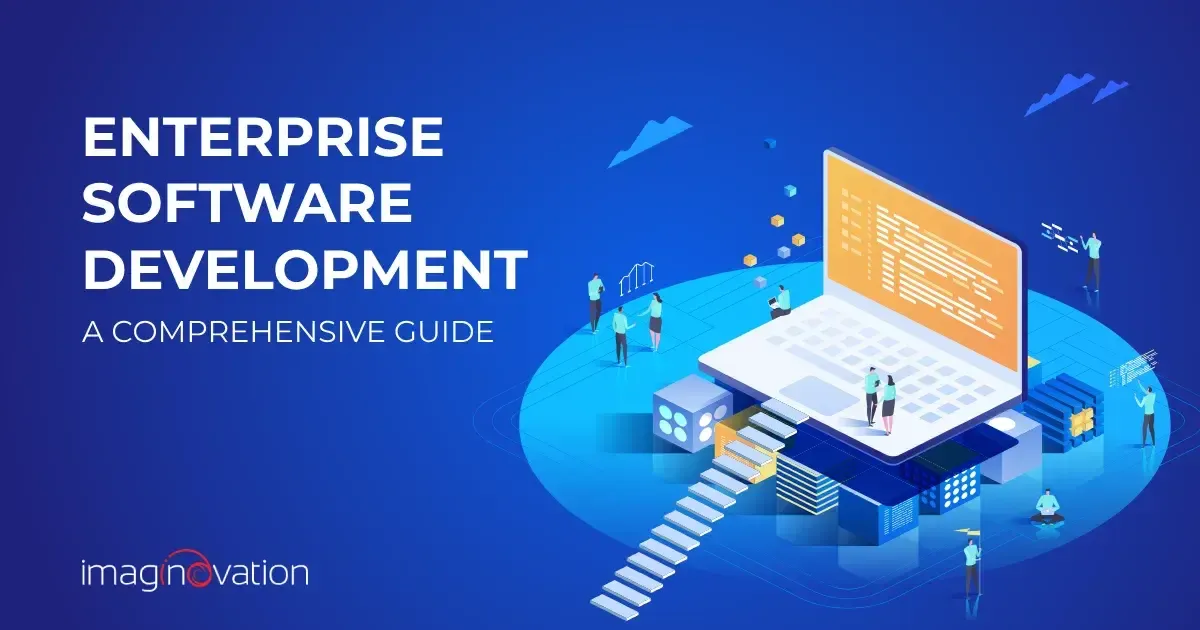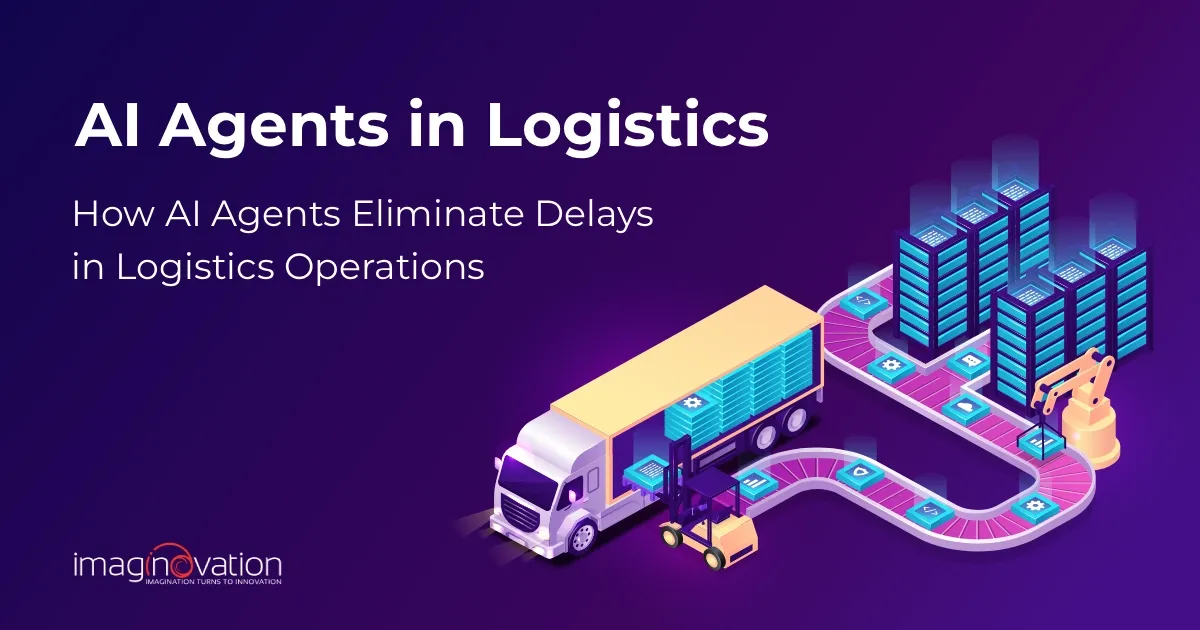To estimate the cost of building a website or an app, use our app cost calculator tool.
Healthcare software development is now a central part of how modern care is delivered.
AI is advancing quickly, interoperability rules are tightening, and patients expect secure, connected digital experiences at every step. As these expectations rise, healthcare organizations are investing in software that not only meets regulatory standards but also improves clinical workflows and day-to-day operations.
Because of this shift, custom healthcare solutions continue to play an important role. They can be shaped around real clinical needs, support complex workflows, and adapt as the industry evolves.
This guide walks you through the essentials of healthcare software development, including key trends, common software types, core challenges, and what it takes to build solutions that are ready for the future of digital health.
Let’s get started.
Healthcare Software Development: Key Statistics to Look for
For paving the way for the future of health, it is prudent to focus on developing custom healthcare software.
The future healthcare landscape will have an excellent blend of technologies, such as AI, blockchain, IoMT, and more.
Let's look at some vital statistics that reiterate the potential for a health system of the future.

1. Healthcare IT market growth
The global healthcare IT market was valued at approximately USD 312.9 billion in 2024 and is projected to grow to about USD 981.2 billion by 2032, representing a compound annual growth rate (CAGR) of around 15.7%. (Source)
Why it matters: This scale highlights how foundational software and digital systems have become for modern healthcare organizations.
2. AI and ML in healthcare
The global AI in healthcare market size was USD 26.57 billion in 2024 and is expected to reach around USD 505.6 billion by 2033, with a CAGR of roughly 38.8%. (Source)
Why it matters: AI is no longer niche—it’s moving into core diagnostic, decision-support, and workflow automation roles, so new software must be built with AI capabilities in mind.
3. Telemedicine and hybrid care models
Recent figures show the global telehealth/telemedicine market at around USD 120.5 billion in 2024, with forecasts projecting growth toward USD 813.7 billion by 2034. (Source)
Why it matters: Remote care is now a standard part of healthcare delivery. Software needs to support seamless patient-clinician interaction, RPM (remote patient monitoring), and integrated billing/records for hybrid models.
4. IoT and the Internet of Medical Things (IoMT)
The global IoMT market was estimated at USD 230.7 billion in 2024 and is projected to grow to about USD 658.6 billion by 2030, with a CAGR of 18.2%. (Source)
Why it matters: The sheer volume of connected devices and data streams requires software that handles device integration, telemetry, interoperability, and security from the ground up.
5. AR, VR, and mixed reality in healthcare
AR/VR in healthcare is gaining traction: market evaluations suggest a value in the low billions in 2024, with steady growth ahead. (Source)
Why it matters: These immersive technologies are moving beyond the pilot phase into applications in training, rehab, and clinical planning — so healthcare software should be ready to support or integrate these experiences.
6. Chatbots and conversational AI
The healthcare chatbot market is estimated to be in the hundreds of millions to low billions around 2024-2025, with strong growth expected through the late 2020s. (Source)
Why it matters: Conversational interfaces and virtual assistants are becoming part of patient engagement and operations. Software must include secure NLP integration, patient-data handling, and compliance.
Also Read: Digitization of Healthcare Supply Chain: Why It's Needed?
Choosing the Right Type of Healthcare Software
Selecting the right type of healthcare software requires understanding how each category supports clinical, operational, and patient-facing goals.
Below is a modern, decision-stage-focused breakdown of the most important software categories for healthcare organizations today.
1. AI-Driven Healthcare Software
AI is reshaping diagnostics, documentation, workflows, and patient engagement. These tools help healthcare organizations deliver higher-quality care with less manual work.
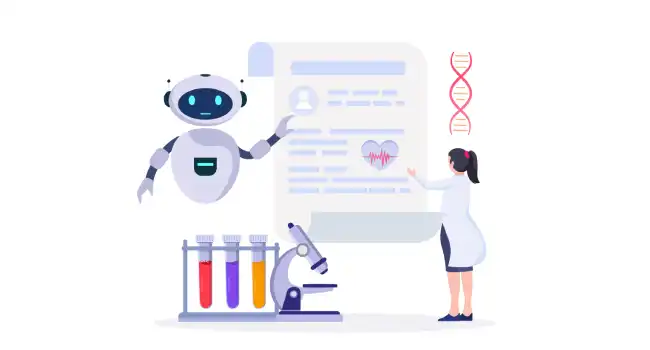
👉 AI Clinical Assistants
Assist clinicians with documentation, triage, intake, and clinical decision support.
Use cases:
- Auto-generating visit notes
- AI-supported intake for virtual visits
- Clinical guideline retrieval during encounters
- Reducing provider burnout
👉 Predictive Analytics Platforms
Analyze real-time and historical data to forecast outcomes and risks.
Use cases:
- Readmission prediction
- Chronic disease risk scoring
- Staffing and resource forecasting
- ED overcrowding prediction
👉 AI-Enhanced Medical Imaging
Accelerates image interpretation and improves diagnostic accuracy.
Use cases:
- Early cancer detection
- Automated anomaly detection
- Cardiac image segmentation
- Radiology workload prioritization
👉 Automated Documentation Tools
Convert conversations into structured clinical documentation.
Use cases:
- Physician note automation
- Coding support
- Voice-based charting
- Reducing administrative clicks
👉 AI-Powered Patient Engagement Tools
Conversational assistants that help patients navigate care.
Use cases:
- Symptom guidance
- Post-visit follow-up
- Appointment scheduling
- Automated FAQ responses
2. Interoperability and Data Infrastructure Software
Healthcare organizations need strong data foundations to support hybrid care, AI, and compliance.
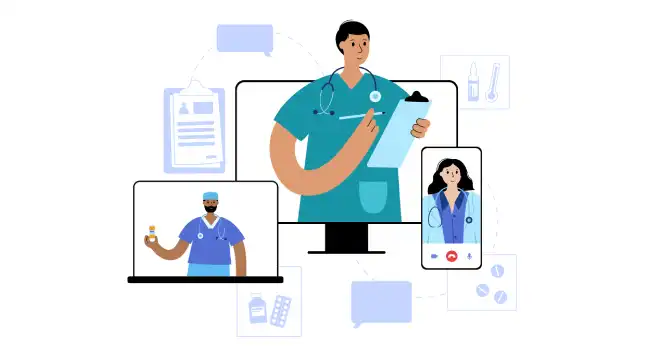
👉 FHIR Integration Engines
Enable standardized data exchange across systems.
Use cases:
- EHR-to-EHR interoperability
- Lab and imaging data exchange
- Third-party app integrations
- Meeting regulatory interoperability rules
👉 Healthcare Data Lakes and Warehouses
Unify data for analytics, AI, and reporting.
Use cases:
- Clinical dashboards
- Population-level insights
- Financial and operational reporting
- Training AI/ML models
👉 Health Information Exchange Connectivity
Connect organizations to regional or national HIE frameworks.
Use cases:
- Coordinated care transitions
- Public health reporting
- Cross-system clinical histories
- Emergency care access to patient data
3. Clinical Care Delivery Software
These solutions support the core functions of delivering and managing care across physical, virtual, and remote settings.
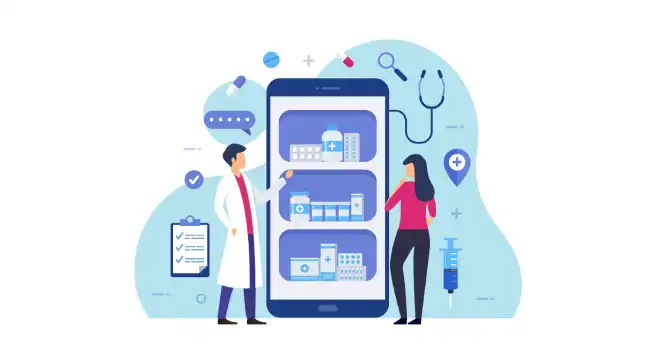
👉 EHR Extensions and Custom Modules
Custom-built workflows and specialty modules around existing EHRs.
Use cases:
- Specialty-specific templates (oncology, cardiology, pediatrics)
- Automating repetitive charting steps
- Integrating telehealth or RPM into the EHR
- Custom reports and dashboards
👉 Care Coordination Platforms
Connect teams and streamline patient journeys.
Use cases:
- Multi-disciplinary care management
- Post-discharge follow-up
- Closing care gaps
- Cross-department communication
👉 Population Health Management Systems
Support analytics and proactive health management.
Use cases:
- Risk stratification
- Disease registry management
- Preventive care planning
- Quality measure reporting
👉 Remote Patient Monitoring Platforms
Collect and distribute real-time patient data from connected devices.
Use cases:
- Chronic disease management
- Post-surgery monitoring
- Automated alerts for abnormal readings
- Reducing hospital readmissions
👉 Telehealth and Hybrid Care Platforms
Support virtual visits, messaging, and coordinated care.
Use cases:
- Virtual primary care
- Behavioral health visits
- Asynchronous consults
- Integrated virtual-and-in-person workflows
4. Operational and Administrative Software
Operations software remains essential but is evolving fast with AI, automation, and analytics.
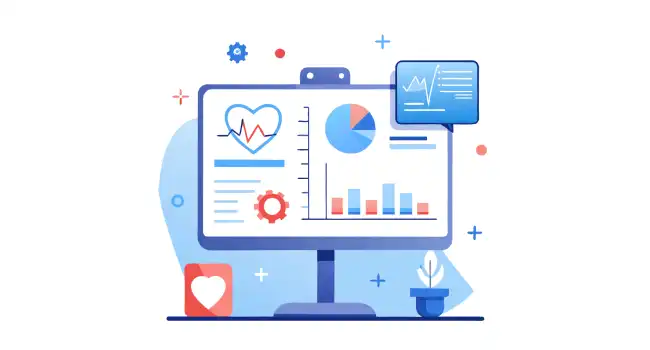
👉 Practice and Hospital Operations Platforms
Handle scheduling, admissions, and daily operations.
Use cases:
- Bed and room management
- Staff scheduling
- Inventory tracking
- Patient flow optimization
👉 Revenue Cycle and Billing Automation
Modern platforms reduce errors and speed up payments.
Use cases:
- Automated claims scrubbing
- Coding support
- Insurance verification
- Predicting denial risk
👉 Supply Chain and Asset Management Systems
Provide visibility into equipment and supply usage.
Use cases:
- IoT-based equipment tracking
- Expiration and maintenance alerts
- Predicting shortages
- Reducing waste and over-ordering
5. Patient Experience and Engagement Software
Software that supports patient access, communication, and self-management.
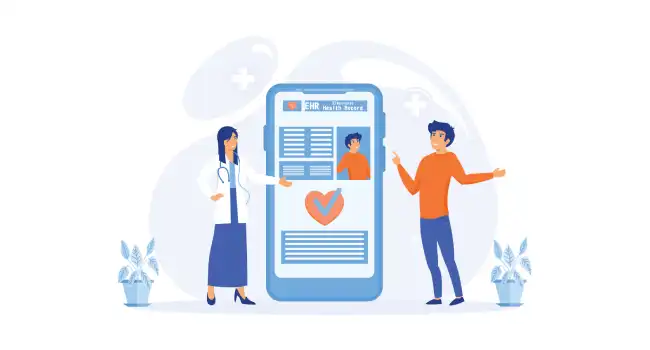
👉 Patient Portals and Mobile Apps
Unified access to appointments, communication, results, and payments.
Use cases:
- Self-scheduling
- Lab result access
- Payment and billing
- Secure messaging
👉 Healthcare CRM and Engagement Automation
Tools for personalized communication and patient outreach.
Use cases:
- Follow-up reminders
- Patient segmentation
- Outreach for chronic care gaps
- Retention and engagement analytics
Read More: Healthcare CRM development: A Complete Guide
👉 Wearable-Integrated Wellness and Chronic Care Apps
Apps that sync with wearables and IoMT devices.
Use cases:
- Activity and sleep tracking
- Chronic disease monitoring
- Preventive health coaching
- Integration with provider dashboards
Getting Started With Healthcare Software Development
Building healthcare software requires more than a strong idea. It calls for careful planning, regulatory awareness, a sound technical strategy, and a grounded understanding of real clinical workflows.
The steps below outline a practical approach organizations can use to plan and execute successful healthcare software projects.
1. Analyze Needs and Compliance Requirements
Start by defining exactly what the software must accomplish and the regulatory expectations it must meet.
This often includes:
- Identifying the clinical or operational problems that the software will address
- Mapping required integrations such as EHRs, labs, medical devices, or third-party APIs
- Determining which compliance frameworks apply (HIPAA, GDPR, SOC 2, HITRUST)
- Assessing whether the solution may need FDA or medical device classification
Completing this analysis early helps establish a clear scope, reduces risk, and ensures your foundation aligns with healthcare regulations.
2. Understand the Market and Competitive Landscape
Before development begins, evaluate the broader market to clarify where your solution fits and how it will stand out.
This includes:
- Researching end users such as clinicians, administrators, and patients to understand pain points
- Reviewing competing solutions to identify gaps and unmet needs
- Understanding whether custom development is required or if extending an existing platform is more efficient
- Estimating long-term ROI, scalability, and potential adoption barriers
A well-informed market analysis helps ensure strong product-market fit and reduces the chance of building features that go unused.
3. Leverage Emerging Technologies Strategically
Modern healthcare software relies on advanced technologies that improve performance, security, and clinical value. Consider how the following can strengthen your system:
- Artificial Intelligence for automation, clinical decision support, and intake
- FHIR-based Interoperability for clean, standardized data exchange
- IoMT Integration for real-time device connectivity and monitoring
- Cloud-Native Architecture for scalability, performance, and flexible deployment
- Blockchain, where auditability and data integrity are priorities
- Predictive Analytics for forecasting risk, utilization, or patient outcomes
Selecting the right technologies ensures your solution stays adaptable and future-ready.
4. Align Development With Business Goals and ROI
Every feature should support a meaningful business or clinical outcome.
Clarify:
- How the software will improve operations, patient experience, or revenue
- Whether a monetization model applies
- The short-term versus long-term value of each feature
- How the solution will reduce costs, close care gaps, or improve outcomes
Aligning development with clear business goals helps ensure the software brings sustainable value.
5. Prioritize Patient-Centered UX and Multi-Device Support
Successful healthcare software must be intuitive and accessible for both clinicians and patients.
Focus on:
- Designing for seamless performance across desktop, tablet, and mobile
- Meeting accessibility and usability standards
- Reducing cognitive load for clinicians by minimizing friction and clicks
- Creating clear, guided flows for patients with varying tech comfort levels
Good UX drives adoption, reduces training time, and supports better clinical outcomes.
6. Design for Security and Compliance Early
Security and privacy should be built into the architecture from the start rather than added later.
Key considerations include:
- Role-based access controls
- Encryption for data in transit and at rest
- Comprehensive audit logging
- Data retention and deletion policies
- Secure cloud configurations
- Threat monitoring and incident response processes
A security-first approach protects sensitive data and supports regulatory readiness.
7. Partner With an Experienced Healthcare Software Development Agency
Healthcare development involves specialized knowledge. A qualified partner can help you:
- Navigate regulatory and compliance requirements
- Architect systems that are scalable, secure, and interoperable
- Integrate seamlessly with EHRs and third-party healthcare systems
- Build software that meets clinical standards and passes rigorous testing
A seasoned team such as Imaginovation can guide you from ideation through deployment with a proven, healthcare-focused development process.
How Much Does Healthcare Software Development Cost?
Healthcare software development costs vary based on complexity, compliance needs, integrations, and the scale of the solution.
The tables below break down typical cost ranges and the major factors that influence total investment.
Table 1: Typical Cost Ranges for Healthcare Software
| Type of Project | Description | Estimated Cost Range |
|---|---|---|
| MVP (Minimum Viable Product) | A streamlined version with core features for early testing and validation. Ideal for startups or organizations exploring feasibility. | $150,000 – $500,000 |
| Mid-Complexity Solution | Custom features across multiple workflows, role-based access, or several third-party integrations. Suitable for growing practices or specialty platforms. | $500,000 – $1M |
| Enterprise-Level Platform | Large-scale systems with advanced functionality such as AI, multi-system interoperability, RPM, or deep clinical workflows. Built for health systems and enterprise use. | $1M+ |
Table 2: Key Factors That Influence Cost
| Cost Factor | What It Impacts |
|---|---|
| Feature Set & Workflow Complexity | More screens, roles, and workflows increase engineering and UX time. |
| Compliance Requirements | HIPAA, GDPR, SOC 2, HITRUST, or FDA can significantly increase documentation, testing, and security engineering needs. |
| Integrations | EHRs, HIEs, lab systems, billing systems, or IoMT devices are often the largest cost drivers. |
| Technology Stack | AI, predictive analytics, IoMT support, or cloud-native architectures require specialized expertise. |
| User Experience Design | Clinician-friendly UX, accessibility standards, and multi-device support add design depth. |
| Scalability Goals | Multi-tenant architecture or support for large patient populations elevates technical complexity. |
| Post-Launch Maintenance | Ongoing improvements, monitoring, updates, and security patches add to long-term cost of ownership. |
Why Healthcare Software Costs More Than Standard Apps
Healthcare solutions demand higher levels of security, documentation, integration, and testing.
They must support clinical accuracy, comply with strict regulations, and operate reliably in mission-critical environments where errors can directly affect patient safety.
Develop Champion Custom Healthcare Software with Imaginovation
Do you want to develop game-changing healthcare software that can reduce healthcare costs, increase access, and improve patient care outcomes?
If you wish to design and develop robust healthcare solutions, don't hesitate to talk to us.
We are an award-winning software development company in Raleigh with extensive experience, and we can help you build robust healthcare software.
Ready to build an app, but not sure where to start?
We've got you covered. Click the button below to get started.





